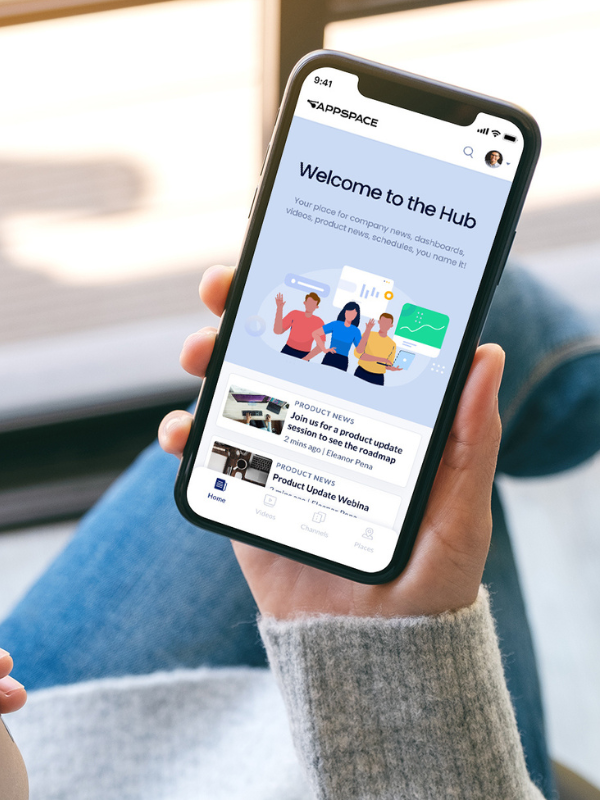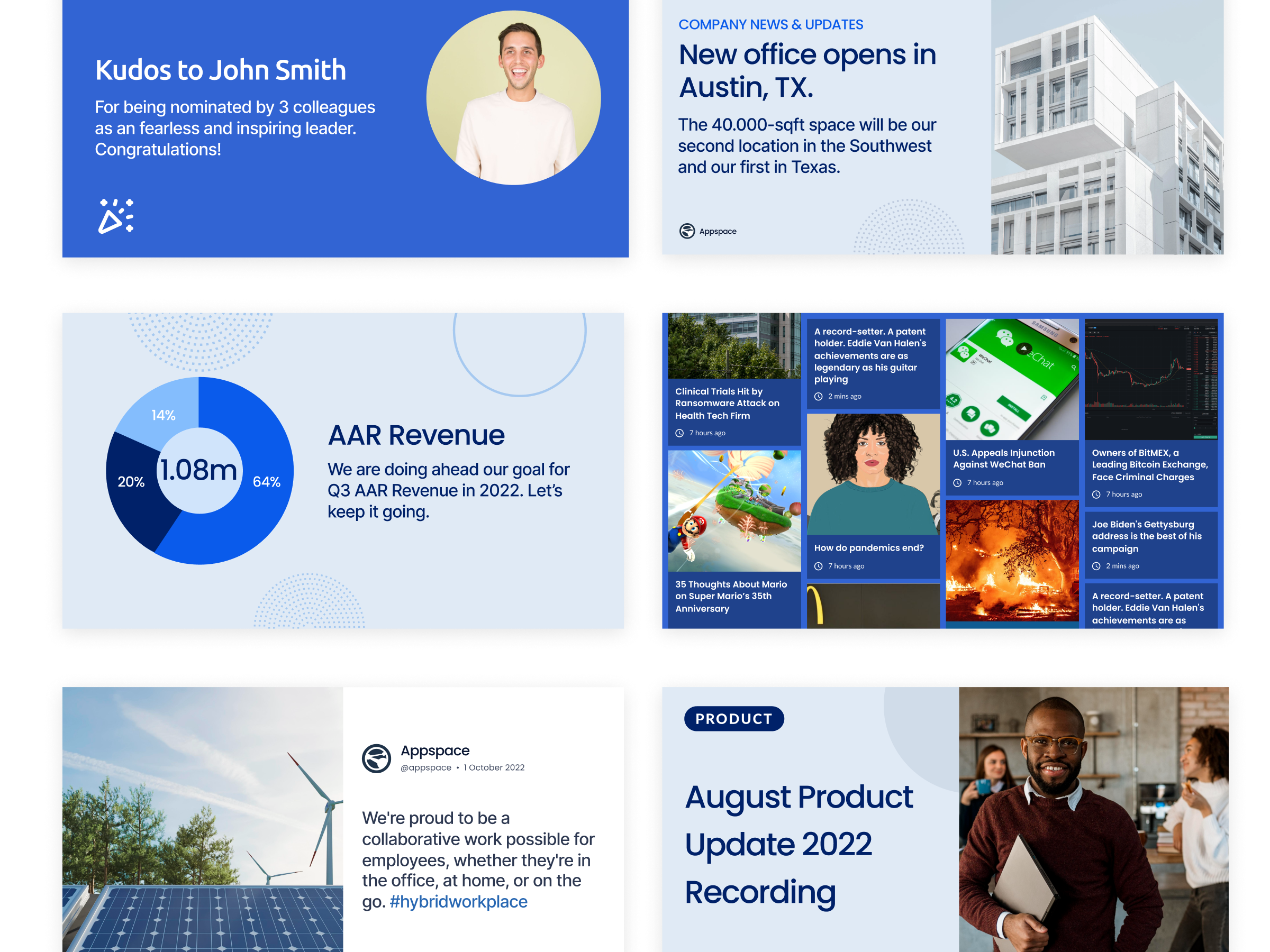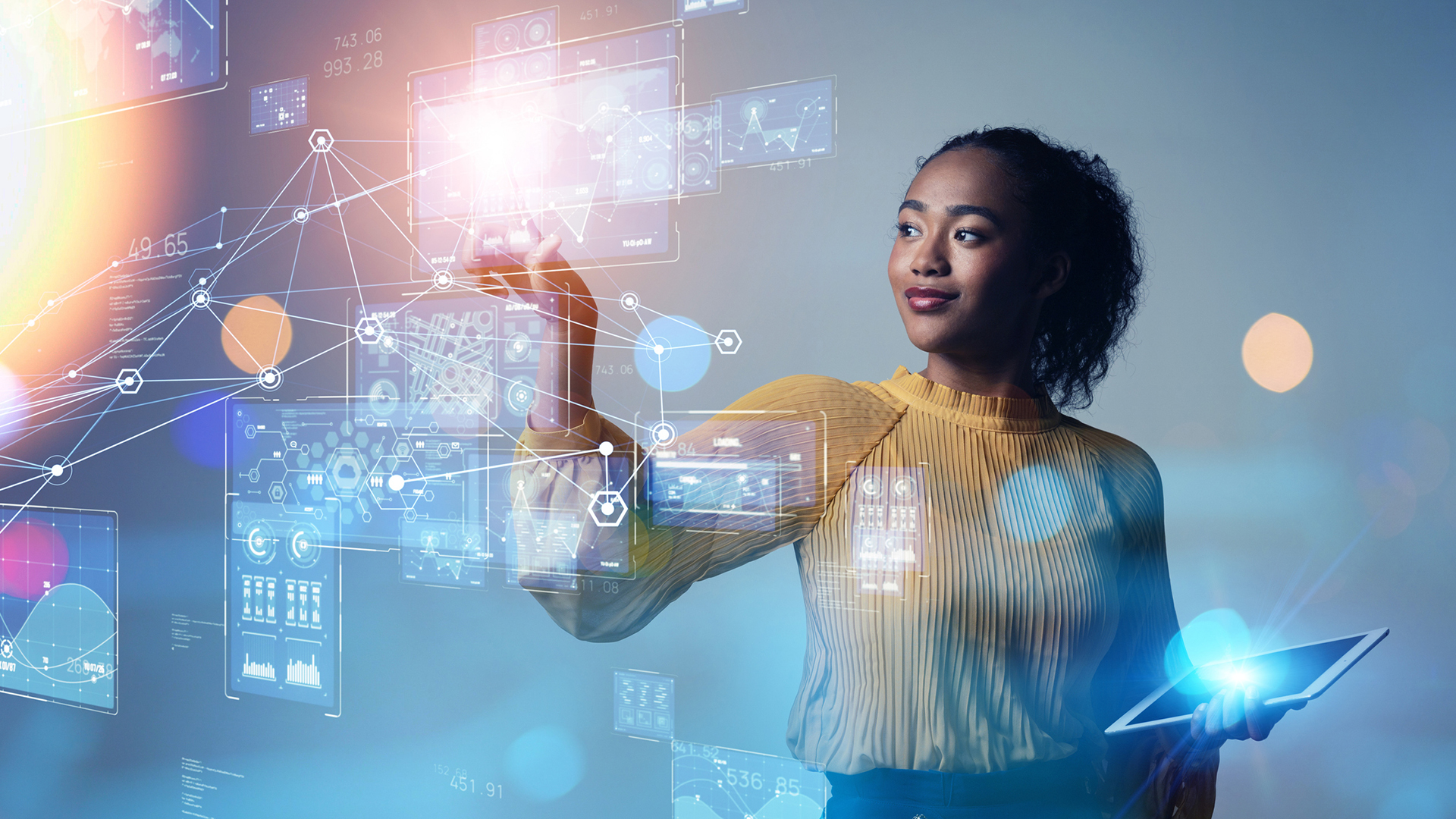Appspace co-founder and Chief Product Officer, Stan Stephens, is excited about the future. And much of that is down to AI. In the first of two Q&A blog posts on the subject, we asked him for his insights on AI and his predictions for its future in the workplace.
Tell us a bit about yourself, Stan.
My passion has always been in technology and user experience, and I’m driven by how we push the boundaries of tech to deliver the best-in-class experiences to our customers. Although I’ve changed roles through the years (from Lead Engineer to CTO to Chief Science Officer and now Chief Product Officer) my focus has always been on ensuring we build the right product using the right technology so we can continue to scale and drive innovations within the company. And that focus now includes AI.
What are some of the benefits of AI in terms of improving efficiency and communication?
Artificial intelligence is really like a super-powered assistant living in your computer. Or in your head, if we’re looking at something like Elon Musk’s Neuralink. AI can sift through mountains of information and content and pull out what’s important to you. It can also automate responses to most common questions. AI is designed to do all the stuff we normally do, but with an extreme level of precision and speed. Well, most of the time, when they improve on what we consider the two North Star metrics of AI, which are alignment and reliability.
If we’re talking about internal communications, we want to make it more efficient, reduce the number of misunderstandings, and make data more accessible. AI can learn what you like, what you need, and suggest content according to your preferences. It’s really like having a super intuitive personal librarian that gets to know your preferences and is always ready to assist. It’s giving us superpowers to help us do our jobs better and more efficiently.
How can we differentiate true AI from traditional algorithms or simple number crunching?
Often, companies will label deterministic algorithms as AI, so services appear more advanced or cutting edge. But true AI, particularly machine learning, which I think is where most people are now getting their experience of AI, is fundamentally different because it learns and improves over time. It’s not explicitly programmed to do a specific task. If we want to determine between real AI and simply number crunching or logic, you need to look at its ability to adapt and learn from new data over time. If the feature or the system is improving its performance or making increasingly accurate predictions based on how you use it and the data you give it, then that’s a strong sign it’s a machine-learning-based AI. Traditional algorithmic systems don’t have the capacity to learn and improve.
AI systems excel at identifying very complex patterns and large data sets like trend analysis. And I’m not just talking about how many people clicked this content, or viewed that channel, but if it can find a nuanced pattern, or make an accurate prediction based on multiple variables, it is most likely AI.
What are some ways AI could help improve the workplace experience?
AI could understand your work patterns and suggest certain activities for you for the day. It could suggest and create a news podcast through your employee app, picking out the information it knows you’d be interested in and compile that into a personalized podcast for you to listen to on your way to work. It could automatically book you for a 10am at your favorite desk. You can kind of do that with an algorithm or deterministic type of AI but the magic comes where you start to see these things get connected, when it’s more than just a bunch of ‘if’s.
Another interesting element is NLP (natural language processing). If a system can understand NLP and respond to natural language queries, that’s another good sign that it’s using AI. That involves complex tasks like semantic understanding and context recognition, going beyond simple keyword matching. For example, I could say, ‘I want to book a room’ – and it’s easy for us to write a deterministic AI that says, look for “book room”, and then we prompt you with a few activities. But what if I said, “Hey, I want to catch up with Jo this week”? There’s no keyword there that could easily be extracted. But an AI can understand that context and say, “this is what you’re trying to do. Now let me suggest a bunch of actions for you.”
What will AI mean for privacy in the workplace?
We need to make sure we do all this responsibly, and we don’t have unintended consequences as we embrace AI in our products, and in our life. It can be a fantastic tool but it can also be a risky game if not properly handled. But what’s really mind blowing for me, for anybody who follows AI, is that it’s getting better every time we interact with it. It learns to adapt. But that’s also why it’s crucial to ensure we do this in the right way.
Of course, we could have AI overloads watching our coffee breaks, timing our bathroom visits… we’re worried that AI could be a little bit like Santa Claus, except it’s checking if we’re naughty or nice, checking if we’re productive or browsing Reddit. I mean, there is some truth in that but we’re a long way from AI having that level of insight and if we did get there, I think there’s going to be some serious privacy and ethical considerations we’d look to address. AI can certainly help us understand workplace habits and productivity patterns but we always need to find that right balance of respect for individual privacy and autonomy.
That said, in my humble opinion, we shouldn’t worry too much about AI judging us or being used to judge us outside of how we work with each other and to drive efficiency. We should be more worried about Bob from accounting, who definitely knows you’re sneaking yogurts from the office fridge. That’s more likely than an AI reporting on your usage habits. But there will be regulation. The issue of privacy has existed with IT for a long time, if you think about it. We all adopt IT policies that have some degree of insight. But again, governance should ensure that the level of insight into what we do on our work devices doesn’t go beyond that into our personal life.
How can AI help solve problems?
AI is a tool and its value lies in how effectively it’s used to solve problems. It’s important to focus on what the results and benefits are that a system provides, rather than whether it uses AI. AI is at an early stage and it will mature. It will get to a point where you’ll stop asking if AI is being used but whether it’s offering an experience that’s radically different to what we had in the past.
Learn more about Appspace AI




